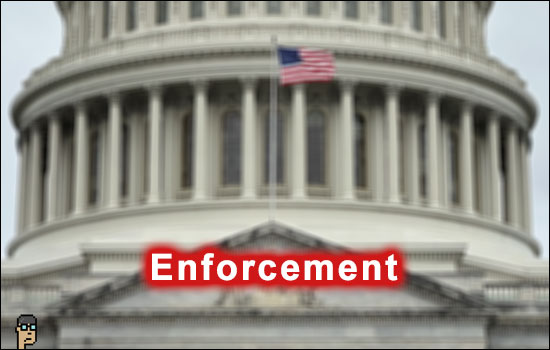An alleged fraudster wreaked havoc on a decentralized asset exchange called Mango Markets according to the latest enforcement action by the Commodity Futures and Trading Commission (CFTC).
In a statement last night, the regulatory agency announced the action against a trader, Avraham Eisenberg:
“This is the CFTC’s first enforcement action for a fraudulent or manipulative scheme involving trading on a supposed decentralized digital asset platform, and its first involving a scheme that is sometimes called ‘oracle manipulation.'”
Regarding “oracle manipulation,” the accused used a data stream (oracle) connected to the price of the Mango token to favorably affect the price of whatever he was trading – in this case, a derivative known as a swap.
The fraud outlined by the CFTC amounts to a classic “pump and dump” where the price goes up just long enough to let the pumper sell his shares, tokens and/or derivatives (this case).
In the space of 30 minutes last October, Mr. Eisenberg reportedly got away with $47 million in digital assets from the Mango Markets platform says the agency.
Guilt by association
The enforcement action may be another tough pill to swallow for decentralized finance (DeFi) proponents with appearances that, somehow, DeFi is at fault through “guilt by association.”
Whoever penned the CFTC release used “supposed” next to “decentralized asset platform” in the opening paragraph which infers “decentralized” stands for a lie in this case. In fact, it poses an interesting question: if it truly was decentralized, would the latest market manipulation have been prevented?
Is that what you mean, CFTC?
So, there appears to be two damning aspects to this action from the CFTC’s point-of-view: Mr. Avraham’s manipulation and a centralized platform declaring itself decentralized.
Fraud by any other name
Much like the FTX fiasco, the Mango Markets incident rings of another example of illicit human manipulation and nothing to do with a lurking dark side in the code of a decentralized token or platform.
A similar argument has occurred with Tornado Cash – a crypto mixing tool which infuses privacy into digital tokens. The trouble for global governments is that privacy potentially enables bad actors using the tool to launder funds digitally in defiance of regulations girded by Anti-Money Laundering and Know-Your-Customer requirements.
The tough question which has yet to be answered by the U.S. government is how to connect to the growing decentralized finance opportunity without introducing undue risk to the U.S. economy and, most importantly, undermining the primacy of the U.S. dollar.
CFTC Commissioner Caroline Pham commented today about the Mango Markets enforcement action saying that it reinforced how decentralized platforms are already regulated in U.S. markets. Much of what’s happening today in digital asset markets is a case of “What’s old is new.”
“Since May 2022, I have highlighted the CFTC’s leading role in bringing digital assets within the regulatory perimeter so that important protections for customers and market participants apply. And I have said that many products that are offered on digital asset exchanges, including products involving trading stablecoins, may be some type of derivative within the CFTC’s jurisdiction. This complaint makes clear that ‘perpetual futures’ can constitute swaps. A swap is a swap, even by any other name.”
Pham’s remarks echoed fellow Commissioner Kristin Johnson’s comments yesterday:
“I have long been concerned about the potential for fraud and manipulation in digital asset markets, and, since my appointment as a Commissioner at the CFTC, have advocated for us to use our existing authority to vigorously pursue misconduct, including fraud and manipulation, even in novel venues like a decentralized digital asset exchange.”
Commissioner Johnson also notes about the alleged crime that “Eisenberg publicly acknowledged his manipulation, and even brazenly proposed to the Mango Markets user community that he would return some of the funds he stole in exchange for an agreement not to pursue him criminally.”
DAOs
In fact, the effects of Eisenberg’s discussion with the Mango community from last year are visible on the Mango DAO discussion board.
With the Ooki DAO enforcement action and now with Mango DAO (and MNGO as the token is known), DAOs may be coalescing as the focus of CFTC enforcement.
But, when it comes to managing growth and innovation in crypto markets and blockchain more broadly, the guardrails for the CFTC, SEC and others are TBD.
The golden cord which connects crypto to the U.S. dollar and economy remains detached.

